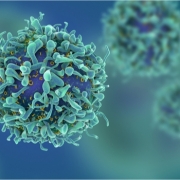Merck presented new data from the Phase III CLEAR trial (KEYNOTE-581/Study 307) at the virtual 2021 Genitourinary Cancers Symposium of the company’s checkpoint inhibitor Keytruda (pembrolizumab) and Eisai’s tyrosine kinase inhibitor Lenvima (lenvatinib) in renal cell carcinoma.
AstraZeneca reported that the company’s Phase III KESTREL trial of Imfinzi (durvalumab) failed to meet the primary endpoint of improving overall survival compared to the EXTREME treatment regimen, which was chemotherapy plus cetuximab, a standard of care.
Roche presented updated data confirming the Swiss drugmaker’s immunotherapy Tecentriq, used in combination with Avastin, substantially improves overall survival in people with the most common form of liver cancer.
Immunocore’s Phase III IMCgp100-202 trial of tebentafusp compared to investigator’s choice for metastatic uveal melanoma (mUM) met the pre-defined boundaries for statistical significance of the primary endpoint of overall survival in its first pre-planned interim analysis.
Could Keytruda/Lenvima Combo Help Treat Advanced Renal Cell Carcinoma?
Blockbusters, Clinical Data, Clinical Trials, Combination Therapies, Overall Response Rate (ORR), Overall Survival (OS), Primary Endpoints, Progression-Free Survival (PFS), R&D, Renal Cell Carcinoma (RCC), Secondary Endpoints, Therapeutics, Topline DataMerck and Eisai announced new investigational data demonstrating positive top-line results from the Phase III KEYNOTE-581/CLEAR trial (Study 307).
Opdivo (nivolumab) 360 mg every three weeks plus Yervoy (ipilimumab) 1 mg/kg every six weeks (injections for intravenous use) was approved by the U.S. Food and Drug Administration for the first-line treatment of adult patients with unresectable malignant pleural mesothelioma.
Roche company Genentech presented data from three Phase III trials of Tecentriq (atezolizumab) in triple-negative breast cancer (TNBC) at the European Society for Medical Oncology (ESMO) Virtual Congress 2020.
ESMO News: AstraZeneca, Merck, Janssen, Amgen and More
Basal Cell Carcinoma, Blockbusters, Breast Cancer, Checkpoint Inhibitors, Clinical Data, Clinical Trial Endpoints, Clinical Trials, EGFR tyrosine kinase inhibitors (TKI), European Society for Medical Oncology (ESMO), Interim Data, MD Anderson Cancer Center, Melanoma, Metastatic Castration-Resistant Prostate Cancer (mCRPC), Metastatic non-small cell lung cancer, Non-Small Cell Lung Cancer (NSCLC), Overall Survival (OS), R&D, Renal Cell Carcinoma (RCC), Therapeutics, TumorsNumerous companies presented clinical trial data and updates at the European Society for Medical Oncology (ESMO) Virtual Congress 2020.
Bristol Myers Squibb announced that the Phase III IDHENTIFY trial of Idhifa (enasidenib) plus best supportive care compared to conventional care did not meet the primary endpoint of overall survival in relapsed or refractory acute myeloid leukemia with an isocitrate dehydrogenase-2 mutation.
Bristol Myers Squibb announced positive data from two separate Phase III clinical trials of the company’s checkpoint inhibitor Opdivo (nivolumab).










